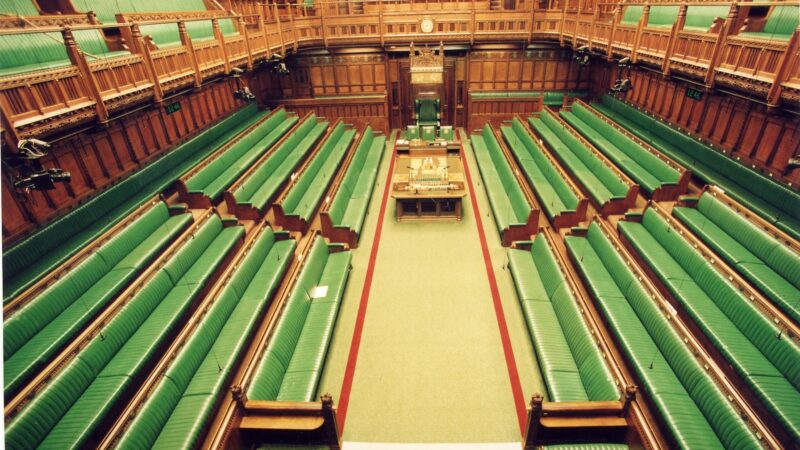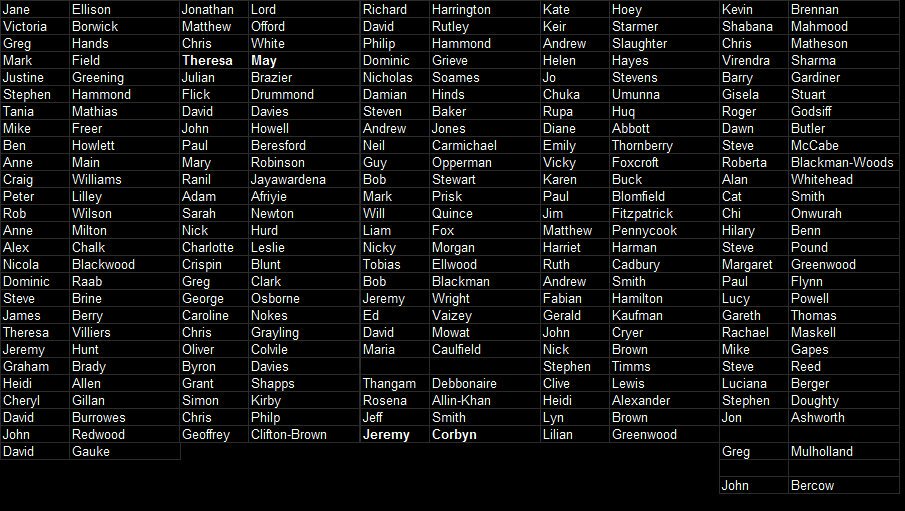Leave constituencies, Remain MPs? It’s more complex than that

“Brave MPs” was how Guido Fawkes described the 6 Members of Parliament who represent constituencies that nominally voted Leave in the referendum, but who voted against the opposition motion* in the House of Commons this week that supported the government’s Brexit timetable and demanded a Brexit plan from the government (more about that plan here). The full list of the 89 MPs that opposed the motion can be found here.
Bearing in mind that the Fawkes blog is never the most balanced on all things European, I flippantly tweeted in response that it would be nice to see the opposite list – MPs in nominally Remain constituencies who nevertheless voted for the motion.
The Twitter user @greygossling handily totted up the numbers for me – 131 MPs voted for the motion or abstained, but come from constituencies where there was a Remain majority – with the names of all here:

Now we have the names and the numbers out of the way, we nevertheless need to be really careful here, for three different reasons.
First, MPs are representatives of the people and not delegates. Chris Bryant MP has written more about that here, quoting Edmund Burke. MPs, he says, need to exercise their judgment – and I agree with him. That is precisely what Kenneth Clarke says he is doing as the only Tory to have voted against the motion – he maintains that proceeding with Brexit is foolish and will carry on opposing it until he is voted out of office. It takes guts to do that, but as one of the most popular Tories there is, you might argue that Clarke has not done too badly out of this sort of behaviour over the years.
Second, which constituencies even voted which way in the referendum is a topic of some debate. Because the count was done on a local authority by local authority basis, not constituency by constituency. Chris Hanretty at the University of East Anglia is the authority on this – he has tried to model how the vote would map to constituencies, and you can find his earlier and later modelling on Medium. The short answer: 401 of the 632 constituencies in England, Wales and Scotland probably had majorities for Leave.
Third, assuming that voters preferences on the Leave vs. Remain issue alone are going to determine their vote at the 2020 General Election is naive. In a Tory-Lib Dem marginal with a Remain-leaning population this might work, but in a solid Tory shire, with a few Lib Dems and Greens here and there it will not. Further, even if Leave supporters were motivated by that issue some will go Tory, some UKIP. Remainer voters might vote Lib Dem or Green (solid Remain) or might still be persuaded that Labour was on their side (questionable). The Brexit referendum will have an impact on the 2020 General Election, but it is not going to be a uniform and foreseeable impact. Pro-Leave MPs may still win in Remain areas, and pro-Remain MPs may still win in Leave areas.
All of this then, if MPs were to approach the Brexit issue with clear heads, ought to mean that – not least with a General Election next formally due in 2020 – they should focus on the task at hand of scrutinising what the government is doing in the Brexit process, and to use every means available to them to make sure that the process is as rigorous, careful, sensible and as well thought out as possible. That is what elected representatives actually ought to be for. We all need to bear that in mind before attacking MPs for their behaviour on the basis of mapping the referendum result to their constituencies.
* – most of the EU-sceptic press in the UK termed this motion as Parliament voting for Brexit and for the Article 50 trigger. I do not see it that way, because we do not currently know the outcome of the Supreme Court ruling, and other things may yet result in the government not being able to trigger Article 50 by the end of March. But those things are not the subject of this blog entry.
I might mention the Hanretty estimate for Oxford West and Abingdon is 62 % remain.
For example: In Oxford West and Abingdon, the MP is Nicola Blackwood, now Parliamentary Under Secretary of State at the Department of Health. She entered Parliament in 2010, gaining it from Dr Evan Harris (Lib Dems).
She backed IN before the referendum but after the vote accepted that “Britain has spoken”, as a proper representative does. Her constituency straddles the counting areas Oxford (70 % remain) and Vale of White Horse (57 % remain): http://www.bbc.com/news/uk-politics-eu-referendum-36615408
At the last general election, Larry Sanders (Greens), Bernie’s brother, ran in that constituency and later on to run in the by-election in Witney. He is also the Green Party’s health spokesperson. Catherine Bearder MEP (Lib Dems) used to be a councillor in Oxford. It will be interesting to see how this play out when the constituency votes next time.